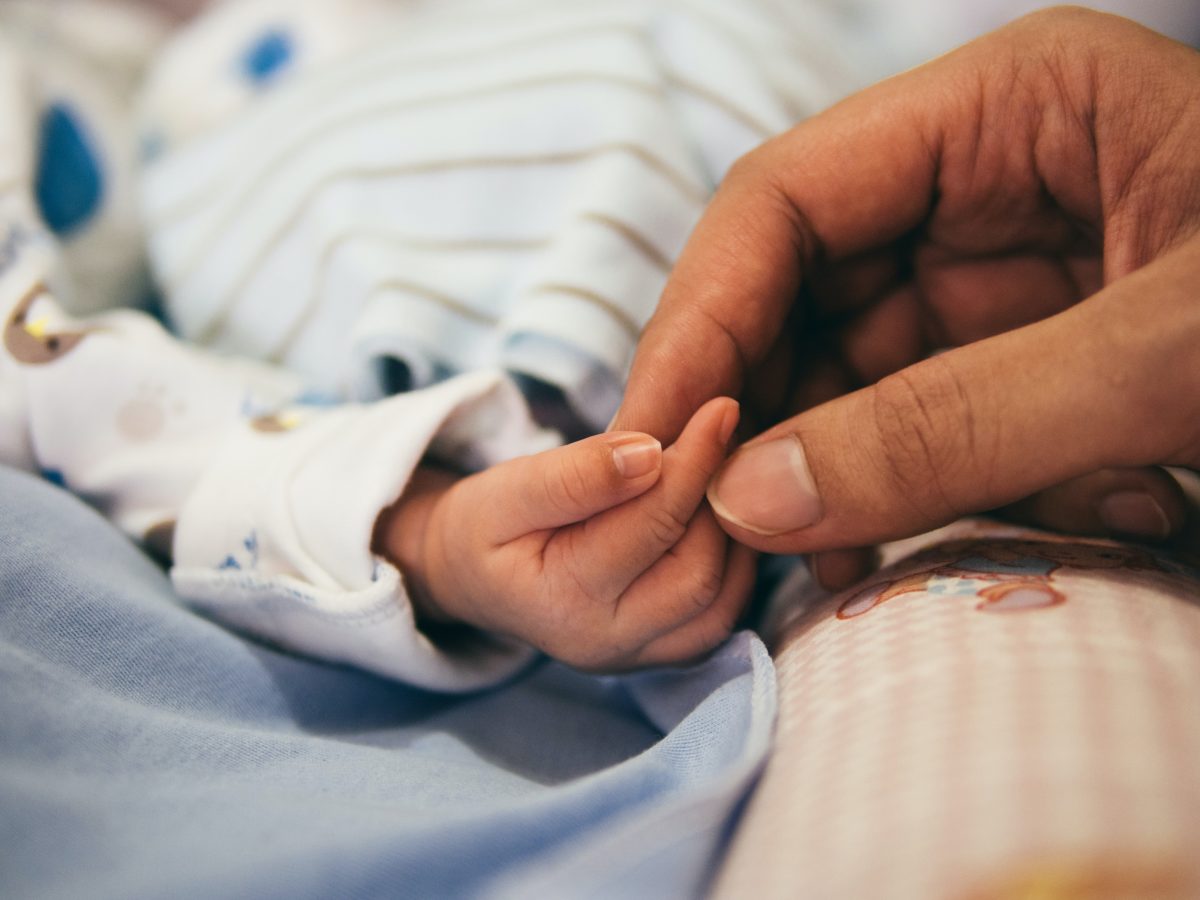This blog was written by Julie Heslop, Strategic Head of Early Help at Manchester City Council.
After running a small pilot project in 2019, which aimed to respond to the high number of babies removed into care or requiring high-level social work intervention at birth, we were keen to start building an evidence base about what works to support families in these circumstances. Having applied to What Works for Children’s Social Care’s Open Funding Round, our Thriving Babies: Confident Parents programme was launched in Manchester in May 2021, to run for two years, with the pilot evaluation being carried out by the Institute of Public Care at Oxford Brookes University between May 2021 and August 2022. We’re delighted that the final report has now been published and has found that the model has the potential to positively impact outcomes for children and families.
The Thriving Babies: Confident Parents programme aims to improve outcomes for vulnerable, ‘high risk’ babies, both pre- and post-birth, by providing an early, coordinated, multi-agency intervention for parents who are recognised as having specific vulnerabilities. The programme seeks to allow babies to thrive by intervening early, ensuring that they are living in safe, stable, permanent homes and are able to remain with their families and communities. The ‘Think Family’ focus ensures that services and interventions are coordinated to address parental challenges, whilst the use of trauma-informed, culturally appreciative practice promotes safety, trust and empowerment in our collaboration with families.
The programme brings together statutory and Voluntary and Community Sector (VCS) partners, including Home Start, midwifery, health visiting, Vulnerable Babies Team, CAPS, Early Help, Early Years, and adult and children’s social care, creating a core team of multi-disciplinary practitioners. We support parents who may have previously had children removed from their care, who are themselves social care experienced and/or have complex vulnerabilities.
The full evaluation report captures the principles and vision of the programme, reflecting what we set out to achieve and how we achieved it. Through this evaluation, the programme was able to demonstrate a targeted intervention, underpinned by trusting relationships between the Thriving Babies practitioners, families, and stakeholders. The evaluation found that there was a reduction in parental risk factors, for example domestic violence or substance use, and that this led to improved resilience and coping skills among parents. Whilst there was a good level of parental engagement in the intervention, the evaluation found no evidence to support concerns that parents might become dependent on the service, and parents described feeling confident about the future.
In delivering the Thriving Babies: Confident Parents programme, we focused on a number of key priorities:
- The programme invested heavily in workforce development across the partnership. Practitioners had access to a range of evidence-based interventions including Newborn Observations, Motivational Interviewing, trauma-informed practice, Safe and Together, Signs of Safety and Parent Assessment Manual (PAMS).
- The programme team were also committed to doing things differently, working flexibly to adapt to change and respond to varying needs. The established core team of Barnardos, Homestart and Early Help provided multi-dimensional support with the capacity to bend and flex, allowing us to avoid the confines of rigid procedural systems. Similarly, the development of the Think Family work within the programme was innovative and progressive with no fixed blueprint for how this work would be structured.
- Cultural attunement, awareness and humility were fundamental to the programme’s ability to engage with diverse communities. Practitioners were provided with bespoke training opportunities and an equality statement setting a clear directive in relation to anti-oppressive and anti-racist practice. Culturally appropriate resources were developed, all documents translated into the chosen language of parents and translation services included in the programme design (individual translators formed part of the team around the family for the duration of the intervention). Feedback showed that this was an effective approach, creating sustained and confident inter-agency and inter-family relationships which helped to support positive change.
Throughout this process, we have also developed a stronger understanding of how we might build on the existing intervention, reflecting on the successes and lessons learnt throughout delivery. Whilst we acknowledge that this evaluation is based on short term outcomes, it provides a foundation for medium to long term tracking and greater programme sustainability in the future.The programme was initially envisioned as a small pilot, however, it quickly developed into a whole service and system design. Whilst the members of the partnership started at different places, there was a shared vision with common goals, and when complications arose, the partnership structure allowed for a rapid response to emerging needs.
The communications strategy developed for the programme was critical to the implementation and success of the programme. Evaluation with stakeholders identified that the combination of briefings, workshops, publications and visual media crucially raised the profile of the programme, involved the wider workforce and drove referrals. The programme was able to offer an intervention to 50% more families than initially agreed.
Manchester City Council is proud of the success of the Thriving Babies: Confident Parents programme. It has demonstrated an effective and impactful approach which has supported babies to remain, where it is safe to do so, with their parents. Since the start of the programme, Manchester has seen a reduction in the number of babies coming into care and the extensive learning around the model has already led to an extension in the scope of the programme. Throughout, the Thriving Babies practitioners have been committed to supporting those with complex and high risk needs, and have achieved positive outcomes for babies, who are safe, happy, healthy and thriving.

